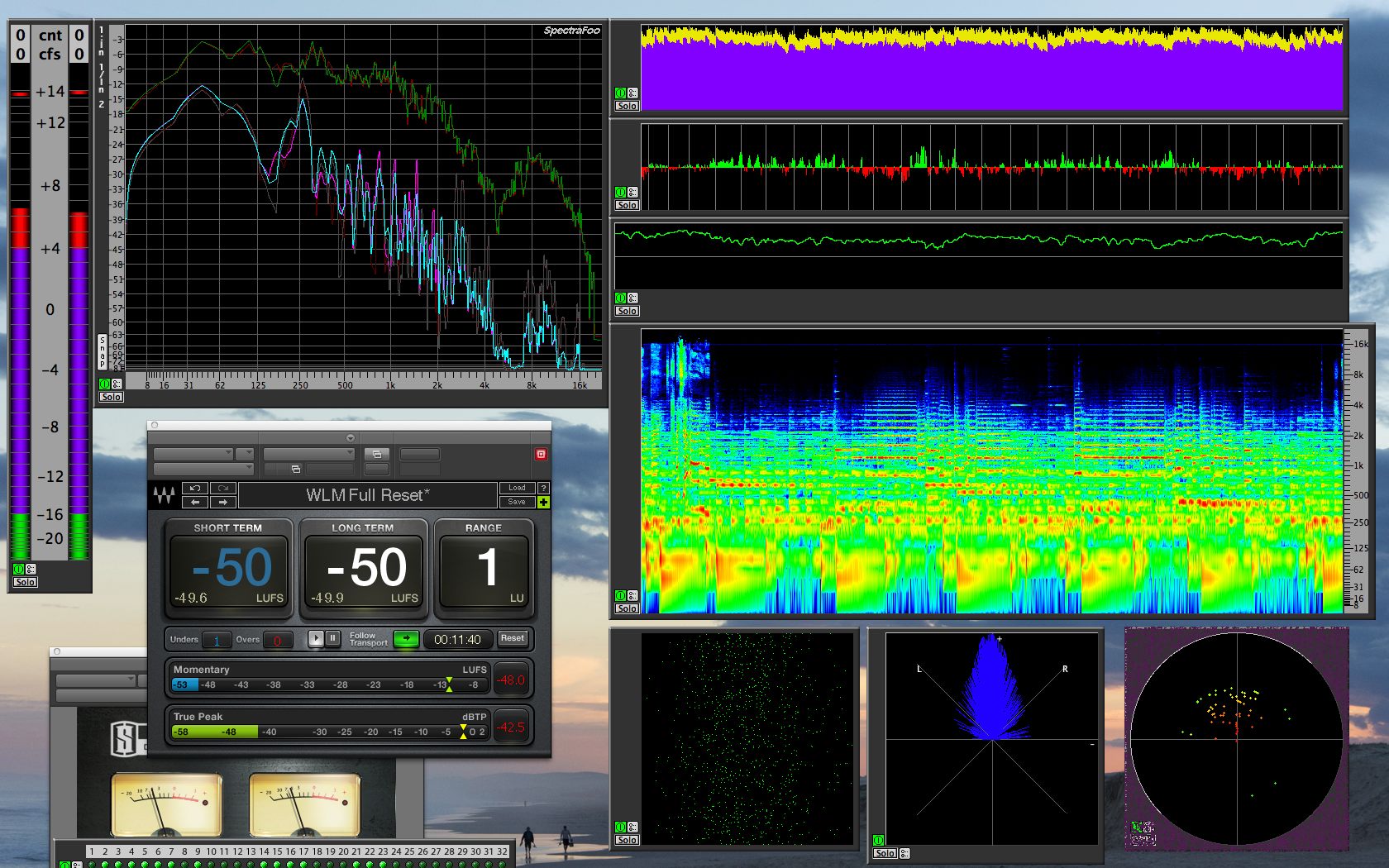Process

Mastering needs those involved to make carefully considered decisions about the audio. My approach to mastering has been to develop innovative all-digital workflows that maximise quality and creativity. This is a step forward from conventional mastering processes that can tend to make musicians feel locked into a rigid technical schedule, or to simply feel the process is inaccessible. Instead of trying to do everything in one long session, it's now wiser to come back to the work more than once. Only with all-digital mastering has this become practical, as analogue equipment can't easily "remember" the previous day's work. Another digital advantage is automating smooth processing changes of many parameters at once is easy, but on analogue systems this can be hard or impossible. Nowadays with state of the art digital tools, I no longer feel any need to "go back" to analogue. And in the last few years much work has been done on modelling the best analogue gear and nowadays this is easily good enough to sound indistinguishable from the real thing.
The mastering process is usually: we listen to the mixes together, I take notes of first impressions & we discuss how to approach it. Then I use whatever tools are neccessary eg. EQ, compression, spatial enhancement etc - to optimise the mixes & make them sit together as an album, from a consumer's perspective. Comparing levels & tone & energy & dynamics, both to other tracks on the CD as well as trusted external references is part of the process, so we truly know where something sits. If possible I try to keep sessions to 4 hours or less at a time, as the listening is fresher this way - so an album is typically two half days. Near the end of this process I do a real time bounce while taking final notes, then assemble a track order (if its a CD) & lock in the metadata.
I always make a reference CD for you to take away and check at home. Or if you are long distance I can create an online secure player that lets you listen & burn your own CD copy. This is because most people know their own stereo much better than the precise listening environment in a mastering room. Secondly any mastered CD must sound good on any "real" playback system and it could be reassuring to try various stereos before feeling completely satisfied. I never consider the project finished until you've heard it properly & can verify its all OK - and this means last minute changes are fine too. After getting the all clear, I make a log sheet and a final master in both audio CD and DDP files set format to pass on to replication. For digital only releases any file format can be supplied, including "Mastered for iTunes" validation.
File formats
An often asked question is what format to supply the music on. For digital files a data DVD or CD, portable hard drive or USB drive works well. Any sample rate up to 192kHz will work and 24bit is much better than 16bit. Always supply a full quality format like aiff or wav files, not lossy formats like mp3. Please don't use compression or limiting on your master fader while mixing as that can't be undone in mastering. It's also possible to bring in whatever medium (e.g yes to quarter inch analogue tape) or playback device (eg. laptop or workstation) you have and we can play it in in real time, analogue or digital. Usually mastering is done on full stereo mixes, but it can be useful to work off a small number of stems instead, eg. vocal & instrument, or rhythm & melody & vocals & backing vocals. Whatever the format, it's good to remember that mastering is not mixing and needs a very different headspace.
Preparation
I encourage people to book ahead a couple of weeks, but for shorter projects it can be OK to fit in time at short notice. If you're working on music and need some technical answers, it could be a good idea to get in contact before finalising the mix. Many potential problems are best avoided at this stage and mastering time is best spent enhancing the music, rather than doing mix surgery. If in doubt, it might make sense to spend up to an hour with me while I check the mixes and write notes about any improvements. If you're interested in technical questions like dither, compression, etc you could look at the Digital Domain website.
Good preparation could also be to bring CDs to the mastering sessions that you know well, or like the sound of. As much as providing a known reference point, it's easier to communicate about the desired end result. And sometimes it's good to hear something else as an aural break.
Return to kv productions mastering